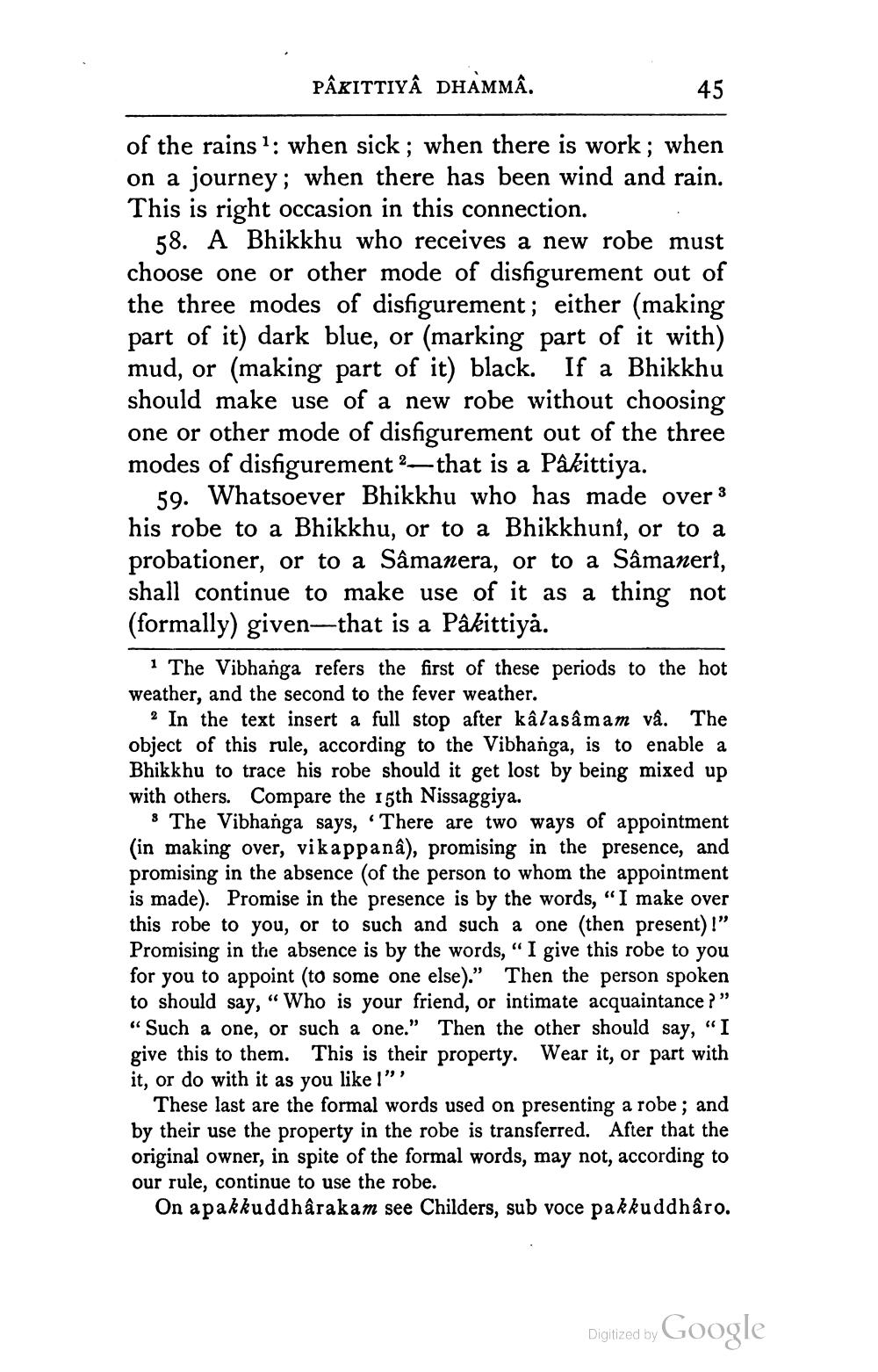________________
PÂKITTIYA DHAMMÂ.
45
of the rains 1: when sick; when there is work; when on a journey; when there has been wind and rain. This is right occasion in this connection.
58. A Bhikkhu who receives a new robe must choose one or other mode of disfigurement out of the three modes of disfigurement; either (making part of it) dark blue, or (marking part of it with) mud, or (making part of it) black. If a Bhikkhu should make use of a new robe without choosing one or other mode of disfigurement out of the three modes of disfigurement 2– that is a Pâkittiya.
59. Whatsoever Bhikkhu who has made over 3 his robe to a Bhikkhu, or to a Bhikkhuni, or to a probationer, or to a Sâmanera, or to a Sâmaneri, shall continue to make use of it as a thing not (formally) given—that is a Pâkittiyå.
1 The Vibhanga refers the first of these periods to the hot weather, and the second to the fever weather.
2 In the text insert a full stop after kalasâmam vå. The object of this rule, according to the Vibhanga, is to enable a Bhikkhu to trace his robe should it get lost by being mixed up with others. Compare the 15th Nissaggiya.
3 The Vibhanga says, “There are two ways of appointment (in making over, vikappana), promising in the presence, and promising in the absence of the person to whom the appointment is made). Promise in the presence is by the words, “I make over this robe to you, or to such and such a one (then present)!”. Promising in the absence is by the words, "I give this robe to you for you to appoint (to some one else)." Then the person spoken to should say, "Who is your friend, or intimate acquaintance?” “Such a one, or such a one." Then the other should say, "I give this to them. This is their property. Wear it, or part with it, or do with it as you like I"!
These last are the formal words used on presenting a robe; and by their use the property in the robe is transferred. After that the original owner, in spite of the formal words, may not, according to our rule, continue to use the robe.
On apakkuddhârakam see Childers, sub voce pakkuddhâro.
Digitized by Google




